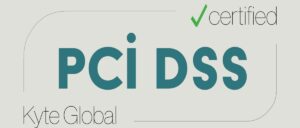Franklin Templeton’s Notes from the Trading Desk offers a weekly overview of what their professional traders and analysts are watching in the markets. The European desk is manned by eight professionals based in Edinburgh, Scotland, with an average of 15 years of experience whose job it is to monitor the markets around the world. Their views are theirs alone and are not intended to be construed as investment advice.
The Digest
Global equities in Europe and the United States finished last week modestly higher, with more muted gains than the prior week. The STOXX Europe 600 Index closed up 1.1%, whilst the S&P 500 Index was up 1.2%. In the Asia Pacific (APAC) region, China led the way, with the Shanghai Composite Index closing the week up 4.5%, helping the MSCI Asia Pacific Index close up 2.5%. Things did feel calmer than the last few weeks, with the CBOE VIX closing below 20 on Friday for the first time since February 2020. The prospect of sizable stimulus continues to help the move higher, whilst macro data points to the recent downturn not being as bad as anticipated. Earnings in Europe and the United States have also been better than expected overall, reinforcing this narrative.
Vaccination Rollouts Provide Some Hope
The United Kingdom remains far ahead of its European counterparts in terms of vaccination progress, which has helped sentiment. The FTSE 100 Index was last week’s outperformer, despite 2020 gross domestic product (GDP) showing the largest drop since the great frost of 1709! GDP was down 9.9% vs. 2021, putting pressure on Chancellor of the Exchequer Rishi Sunak to increase or extend stimulus measures as part of his UK Budget due to be presented to parliament on 3 March. UK sterling also shook this off, higher on the week vs. the US dollar. As the vaccination rollout in the UK continues to make progress, both infection and hospitalisation figures are now falling, along with daily deaths. There is some hope that the United Kingdom will see easing of national restrictions, potentially from March onwards, especially as warmer weather naturally brings about a seasonal remission of viruses. UK Prime Minister Boris Johnson has announced that he will reveal his plan for existing lockdown on 22 February.
New daily infections are also falling fast in other hard-hit European countries such as Portugal, Spain and the Netherlands. Rates are starting to trend lower in Germany and appear to have peaked in France. Similar to the United Kingdom, there is some hope that regions will begin to consider easing national restrictions. Italy appears to be the exception currently, with recorded cases broadly flat (and still significantly higher than during March/April last year).
The vaccination programme is also progressing well in the United States. Based on the current estimates, the United Kingdom will have administered at least one dose of the vaccine to 75% of the population by May of this year and the United States is estimated to reach that number in September. Europe would not hit the 75% level until summer 2023, although this date will shift closer as more vaccines are approved and production is ramped up, but is a stark indicator of the current disparity.
Draghi Forms New Italian Government
Economist Mario Draghi has now been appointed as Italy’s new prime minister, with a strong parliamentary majority. On Friday, the Five-Star Movement (the single largest party in parliament) voted to back Draghi in forming a coalition. Whilst the party has anti-establishment routes and a history of denouncing bankers and technocrats, they voted 59% in favour of backing Draghi, who previously served as the European Central Bank president. Almost all large parties in Italy (apart from the far-right Brothers of Italy party) have joined Draghi’s new coalition, allowing him to take office with a broad support base. Importantly, Draghi’s cabinet is comprised of a mixture of lawmakers from across the political sphere as well as technocratic experts, which should appease the wide spectrum of his parliament for now, at least.
With the risk of an election avoided, Italian spreads have continued to tighten, with the 10-year government bond yield trading at an all-time low. The two-year spread (most sensitive to financing stress) has fallen to 28 basis points (bps), having been 50 bps in January and nearly 2.5% last year. Italian equities have also outperformed this month thanks to the recent developments. Italy’s FTSE MIB Index is up over 8.5% month-to-date vs. the STOXX Europe 600 Index, up 4.3% in February. Whilst the formation of a new government is clearly positive for sentiment, Draghi is likely to face challenges in keeping such a mixed coalition unified. Conflicts with the Five-Star Movement over policy agenda are almost certain to emerge.
Draghi’s immediate challenges will be in fighting the COVID-19 pandemic, ensuring a successful vaccination programme, and containing the economic damage of the pandemic. He must also draw up an effective plan for the spending of the €200 billion European Union (EU) recovery grant. How Draghi handles these daunting challenges will likely define the legacy of his premiership.
European Initial Public Offerings (IPOs) and Positioning
The Financial Times highlighted Europe’s market for IPOs has seen its best start to the year since 2015, as extended pandemic lockdowns fuel investor enthusiasm for digital companies. So far this year, companies listing on European stock exchanges have sold €8.4 billion in equity through 16 deals, according to Refinitiv data. That figure, which includes new funds raised and owners cashing out stakes, was the biggest haul and number of IPOs for the comparable period since 2015. It was the second-biggest amount raised in data going back to 1998. About 70% of the equity sold was in companies that have benefitted from the shift online by businesses and consumers during the pandemic, including card retailer Moonpig and parcel locker business InPost.
Whilst this all suggests that there is an appetite for European equities, there is evidence elsewhere of a lack of conviction for the region. Headlines that equities saw record US$58 billion inflows last week drew attention on Friday, with technology funds at the centre of the surge. What we thought notable, however, is that of this only US$600 million was into European equities. IPOs and capital raises may be hot right now, but outside of this bargain-hunting, it feels that any real conviction for European equities is low, even with the STOXX Europe 600 Index testing recent highs.
A recovery in global demand has the potential to benefit Europe disproportionately, especially as it is expected to be dominated by consumer spending on luxury items and capital goods, both of which are well represented in European indices.
Week in Review
Europe
European equities closed last week higher, but gains were more muted than the prior week as markets digested a slew of earnings releases, Italian political developments, and COVID-19-related headlines. Spain was the week’s underperformer, with rhetoric from the United Kingdom in particular dampening hopes of international travel any time soon; the overriding message was to not book summer holidays abroad. Looking at sectors, technology and basic resources were the winners, with the former mirroring strength in the United States and the latter boosted by a decent week for underlying materials. The euro was stronger on the week, helped by positive developments in Italian politics as well as COVID-19 recovery fund optimism.
The EU’s €672.5 billion Recovery and Resilience Facility (RRF) was approved last Wednesday and formally signed off on Friday. EU member-state governments will now have to submit their spending plans by the end of April and highlight how the funds will be allocated to-boosting investments and reforms, which can include supporting research and development and education. To receive the funds, the plans will need to include a min 37% allocation to the transition to a greener economy and at least 20% to initiatives to digitise their economies.
United States
US equities continued their grind higher last week. The S&P 500 Index closed at all-time highs on Friday, and the NYSE FANG Index closed the week up 4.5% as Twitter gained 26% on a strong earnings release. In terms of sectors, energy was up 4.3% (helped by gains in West Texas Intermediate (WTI) crude oil, and information technology was up 2.3%. Defensives lagged, with utilities down 1.8%.
Looking at market drivers, the debate over President Joe Biden’s stimulus package remains a focus. With the impeachment process of former President Trump now over, the hope is Congress will now focus on the stimulus package. The administration hopes to have legislation passed by mid-March.
Elsewhere, Federal Reserve Chair Jerome Powell gave a speech last week and continued with the dovish narrative. He stated the softness in the US labour market (particularly participation rate) will remain for some time, and it is important to maintain a patient and accommodative monetary policy stance.
Earnings have been a big focus in recent weeks, with the fourth-quarter (Q4) season being fairly encouraging—82% of the S&P 500 Index’s market capitalisation have reported Q4 results, and earnings have surpassed estimates by 16.7% in aggregate, with 80% of companies beating their projections. For S&P 500 Index names that have reported so far, Q4 blended revenues rose 1.3% year-on-year (analysts had predicted a 1.4% drop) and profits climbed 3.4% in revenues. Looking ahead, analysts predict 23.3% rise in earnings in 2021, and sales growth of 16%. It seems that US companies could be at a turning point.
Bitcoin was a talking point once again last week, as Tesla announced it bought US$1.5 billion bitcoin in January and was making plans to begin accepting the cryptocurrency as payment for cars. This saw Bitcoin surge to new highs, up 26% by the end of the week.
Finally, it is encouraging to see new COVID-19 cases fall sharply in the United States, and the vaccination programme continues to make good progress with over 1 million people being vaccinated per day.
APAC
The MSCI APAC Index closed last week up 2.5% as mainland China led the way. Hong Kong’s equity market also put in a strong performance, up 3%. Hong Kong is set to relax COVID-19 restrictions after the Lunar New Year, with restaurants to increase capacity and cinemas and theme parks to reopen.
In an easing of tensions, Chinese and Indian troops begin disengaging along the two countries’ disputed Himalayan border on Wednesday following consensus in talks, according to China’s defense ministry.
Australian equities underperformed as Reserve Bank of Australia officials assured that their monetary stimulus will not fuel excessive stock or property valuations, saying that unemployment is too high and activity levels are too depressed to produce an asset bubble.
Finally, the visit to China by the World Health Organisation (WHO) hasn’t managed to identify the COVID-19 virus’ origins, at least according to the Biden administration. The White House said it has ‘deep concerns’ about the United Nations (UN) health agency’s probe, its access to data and how early findings were communicated, adding that the report must be independent of Beijing. The WHO has distanced the mission from a definitive conclusion, saying all avenues of research remain open.
Week Ahead
It will be a quiet start to the week, with a US bank/market holiday Monday and many Asian holidays also closed for (China closed until Thursday for Lunar New Year). In addition, we have UK school holidays all week, which will impact volumes.
Monday 15 February
- Eurogroup and Economic and Financial Affairs (Ecofin) meeting (until Tuesday 16 February)
- Eurozone trade balance and industrial production
- Japanese GDP
Tuesday 16 February
- Eurozone GDP
- German Zentrum für Europäische Wirtschaftsforschung (ZEW)
Wednesday 17 February
- Federal Open Market Committee (FOMC) minutes released
- UK consumer price index (CPI) inflation
- US Producer Price Index (PPI), industrial production and retail sales
Thursday 18 February
- US House hearing to discuss recent volatility driven by retail investing.
- ECB publishes its 2020 financial accounts and a review of its latest policy meeting
Friday 19 February
- US, UK and Europe Purchasing Managers’ Index (PMI) survey
Franklin Templeton Key risks & Disclaimers:
What Are the Risks?
All investments involve risk, including possible loss of principal. The value of investments can go down as well as up, and investors may not get back the full amount invested. Stock prices fluctuate, sometimes rapidly and dramatically, due to factors affecting individual companies, particular industries or sectors, or general market conditions. Bond prices generally move in the opposite direction of interest rates. Thus, as prices of bonds in an investment portfolio adjust to a rise in interest rates, the value of the portfolio may decline. Investments in foreign securities involve special risks including currency fluctuations, economic instability and political developments. Investments in developing markets involve heightened risks related to the same factors, in addition to those associated with their relatively small size and lesser liquidity. Past performance is not an indicator or guarantee of future performance.
This article reflects the analysis and opinions of Franklin Templeton’s European Trading Desk as of 15th February 2021, and may vary from the analysis and opinions of other investment teams, platforms, portfolio managers or strategies at Franklin Templeton. Because market and economic conditions are often subject to rapid change, the analysis and opinions provided may change without notice. An assessment of a particular country, market, region, security, investment or strategy is not intended as an investment recommendation, nor does it constitute investment advice. Statements of fact are from sources considered reliable, but no representation or warranty is made as to their completeness or accuracy. This article does not provide a complete analysis of every material fact regarding any country, region, market, industry or security. Nothing in this document may be relied upon as investment advice or an investment recommendation. The companies named herein are used solely for illustrative purposes; any investment may or may not be currently held by any portfolio advised by Franklin Templeton. Data from third-party sources may have been used in the preparation of this material and Franklin Templeton (“FT”) has not independently verified, validated or audited such data. FT accepts no liability whatsoever for any loss arising from use of this information and reliance upon the comments, opinions and analyses in the material is at the sole discretion of the user. Products, services and information may not be available in all jurisdictions and are offered by FT affiliates and/or their distributors as local laws and regulations permit. Please consult your own professional adviser for further information on availability of products and services in your jurisdiction.
Issued by Franklin Templeton Investment Management Limited (FTIML) Registered office: Cannon Place, 78 Cannon Street, London EC4N 6HL. FTIML is authorised and regulated by the Financial Conduct Authority.
MeDirect Disclaimers:
This information has been accurately reproduced, as received from Franklin Templeton Investment Management Limited (FTIML). No information has been omitted which would render the reproduced information inaccurate or misleading. This information is being distributed by MeDirect Bank (Malta) plc to its customers. The information contained in this document is for general information purposes only and is not intended to provide legal or other professional advice nor does it commit MeDirect Bank (Malta) plc to any obligation whatsoever. The information available in this document is not intended to be a suggestion, recommendation or solicitation to buy, hold or sell, any securities and is not guaranteed as to accuracy or completeness.
The financial instruments discussed in the document may not be suitable for all investors and investors must make their own informed decisions and seek their own advice regarding the appropriateness of investing in financial instruments or implementing strategies discussed herein.
If you invest in this product you may lose some or all of the money you invest. The value of your investment may go down as well as up. A commission or sales fee may be charged at the time of the initial purchase for an investment and may be deducted from the invested amount therefore lowering the size of your investment. Any income you get from this investment may go down as well as up. This product may be affected by changes in currency exchange rate movements thereby affecting your investment return therefrom. The performance figures quoted refer to the past and past performance is not a guarantee of future performance or a reliable guide to future performance. Any decision to invest in a mutual fund should always be based upon the details contained in the Prospectus and Key Investor Information Document (KIID), which may be obtained from MeDirect Bank (Malta) plc.





